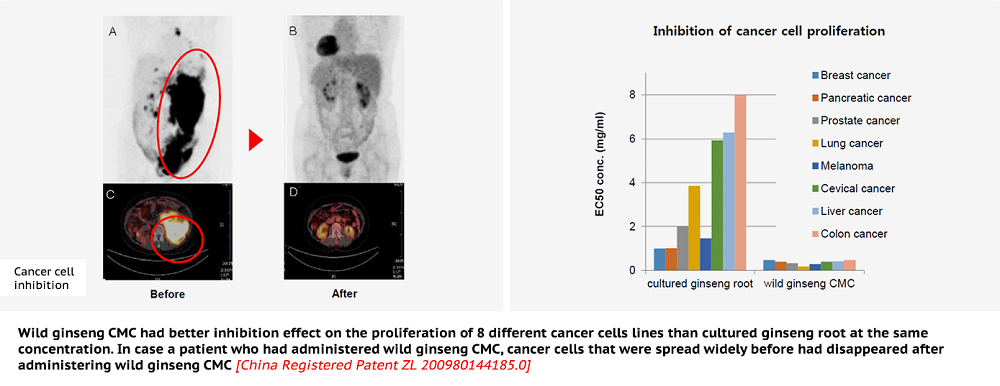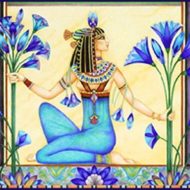Adaptogens are a class of plant medicines which help the body regain optimal balance and function. They differ from other herbs in being able to both upregulate and downregulate the body’s biosystems, depending on their current state. In other words, these plant medicines help improve homeostasis, resilience, and balance.
There are a number of well known adaptogens, which have been used particularly in China and India for millenia. Well know examples are:
- Ginseng
- Ashwagandha
- Licorice Root
- Tulsi (Holy Basil)
- Astragalus
- Cordeceps
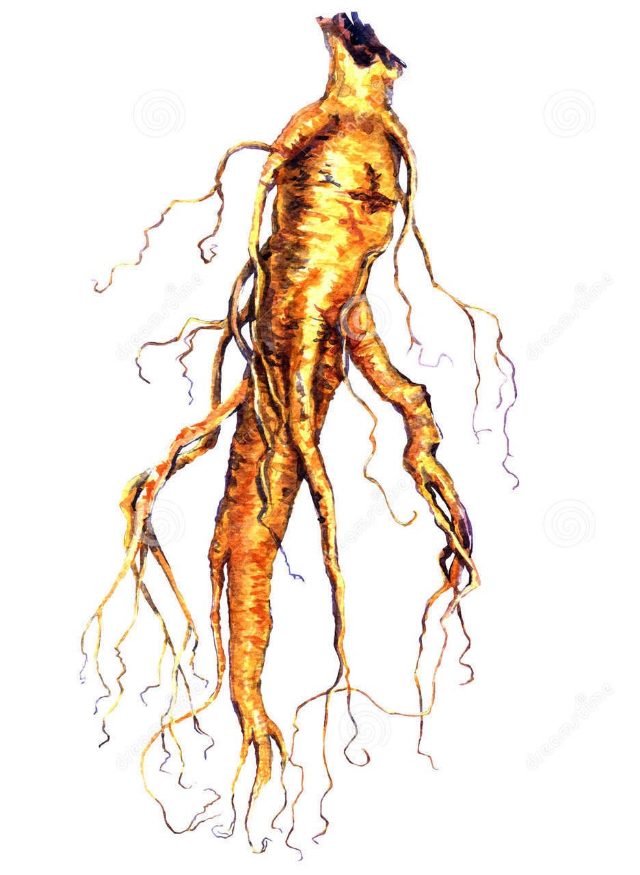
Ginseng is a popular herb used primarily in China for longevity by older men. A common name for ginseng is “man-root.” This is because of the shape of the root. Asian ginseng benefits the whole body, and is prized for boosting yang chi, while American ginseng is softer and has a more yin effect. Women can benefit also from Asian ginseng, while needing smaller amounts than men generally. The most active components are called ginsenocides.
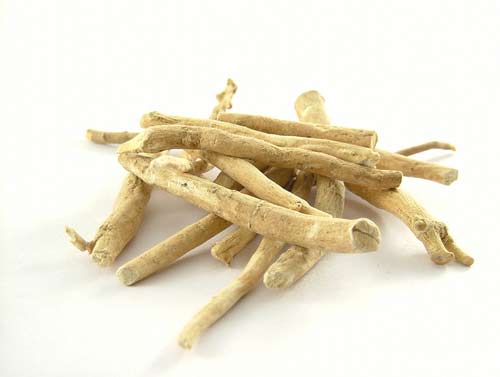
Ashwagandha is Sanskrit for “smell of the horse,” which refers to both its unique smell and ability to increase strength. It is one of the most prized herbs in India, where is has been used in Ayurveda for many centuries. A randomized, controlled trial in 2012 of 64 adults with chronic stress, two daily doses of 300 mg full-spectrum ashwagandha extract per day can safely and significantly reduce cortisol and self-reported stress levels. The researchers who conducted the study concluded that “high-concentration full-spectrum ashwagandha root extract possesses the ability to improve the overall well-being of a person.” Other peer-reviewed studies show ashwagandha can prevent stress-related weight gain, protect the brain during aging, and improve male hormone balance and fertility. Additionally, one study showed ashwagandha increased thyroid hormone levels.
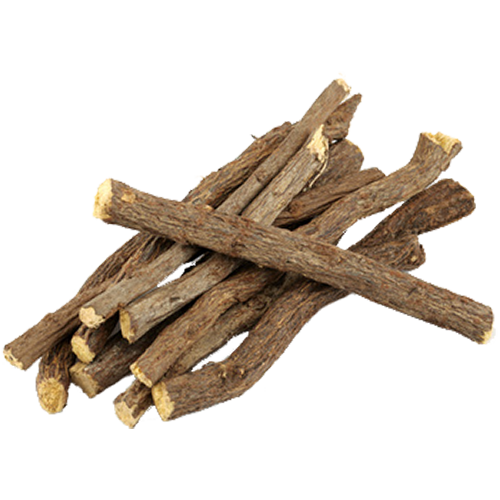
Licorice Root is the unpeeled dried roots and runners, and the underground stem (rhizome) of the plant. Licorice root contains the compound glycyrrhizin, which is anti-inflammatory and boosts the immune system is used to soothe gastrointestinal problems by repairing the stomach lining and restoring digestive balance.
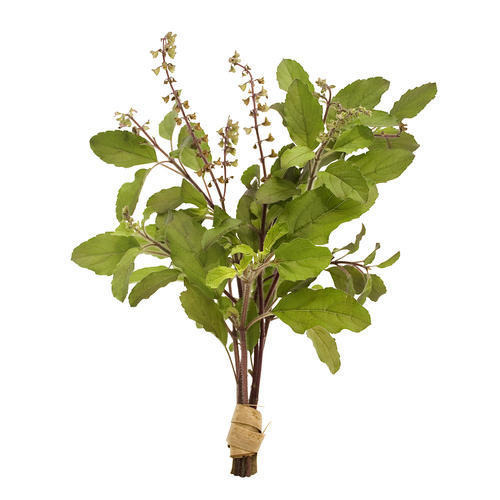
Tulsi, also called Holy Basil, is one of the most sacred plants in India and is considered “The Queen of the Herbs” for its restorative and spiritual properties. Also spelled Tulasi or Thulasi, it has been used for thousands of years to support a healthy response to stress, natural detoxification, and restore balance and harmony. Traditional uses of tulsi include reducing inflammation, healing skin conditions, and for its antibacterial and aphrodisiac properties.
Scientific research indicates tulsi has the following effects:
- Broad-spectrum antimicrobial activity
- Antioxidant action
- Wound-healing
- Detoxification
- Reduction of blood sugar levels
A double-blind trial investigating the effects of tulsi in people with generalized anxiety found that tulsi extract significantly reduced symptoms of anxiety, stress, and depression. Another study of healthy adults found that tulsi significantly improved their cognition and reduced their task error rates compared to placebo). Eugenol, a naturally-occurring compound in tulsi, is thought to be responsible for most of its medicinal properties.
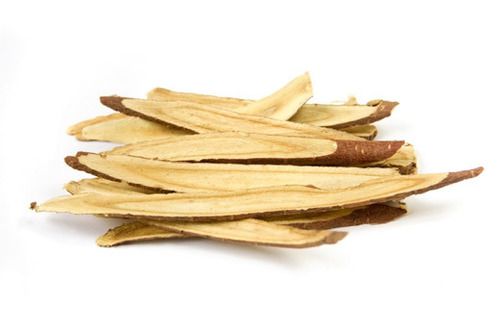
Astragalus root is used to make medicine. … Astragalus is taken by mouth for seasonal allergies, heart failure, diabetes and to strengthen and regulate the immune system and many other conditions. Some people use astragalus as a general tonic, to protect the liver, and to fight bacteria and viruses.
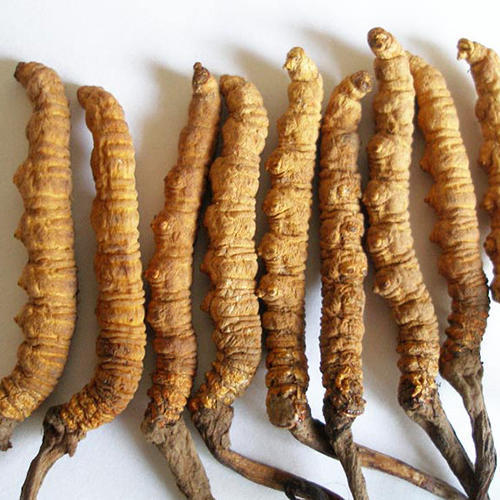
Cordyceps is a unique medicinal mushroom. Cordyceps is a powerful immune booster. It stimulates the immune system by increasing the number and boosting the activity of natural killer cells (a type of white blood cell), which protect the body from viruses and bacteria.
The best known benefits of cordyceps are:
- Boost Exercise Performance
- Anti-Aging Properties
- Anti-Tumor Effects
- Manage Type 2 Diabetes
- Improve Heart Health
- Fight Inflammation
Cordyceps are thought to increase the body’s production of the molecule adenosine triphosphate (ATP), whichdelivers energy to the muscles. One study also tested the effects of a Cordyceps-containing mushroom blend on exercise performance in younger adults. After three weeks, participants’ VO2 max had increased by 11%, compared to a placebo.
The elderly have traditionally used Cordyceps to reduce fatigue and boost strength and sex drive. Researchers believe their antioxidant content may explain their anti-aging potential. One study found that mice that given Cordyceps lived several months longer than mice given a placebo .
Researchers believe Cordyceps exert anti-tumor effects in several ways. In test-tube studies, Cordyceps have been shown to inhibit the growth of many types of human cancer cells, including lung, colon, skin and liver cancers,
Interestingly, Cordyceps may keep blood sugar levels within a healthy range by mimicking the action of insulin. In several studies of diabetic mice, Cordyceps was shown to decrease blood sugar levels.
Cordyceps are approved in China for the treatment of arrhythmia, a condition in which the heartbeat is too slow, too fast or irregular.
Research has shown that when human cells are exposed to Cordyceps, special proteins that increase inflammation in the body become suppressed, so that Cordyceps can be a useful anti-inflammatory supplement.
Most Potent Form of Ginseng – Stem Cell Korean High Mountain Ginseng
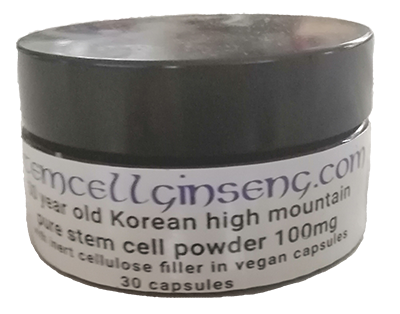
Ginseng is a powerful antiaging adaptogen famous throughout Asia and particularity in China for millennia.
Hormetically stressed Ginseng (grown high in mountains) produces rare ginsenocides. Dr Lee of Unwha Ltd has cultured and grown CMC stem cells from the root tip of a 50 year old high mountain Korean Ginseng plant for over 10 years.
Over 200 papers show the anti-aging and anti-cancer effects of rare ginsenocides. See stemcellginseng.com
Stem Cell Ginseng Science – skin UV antiaging:
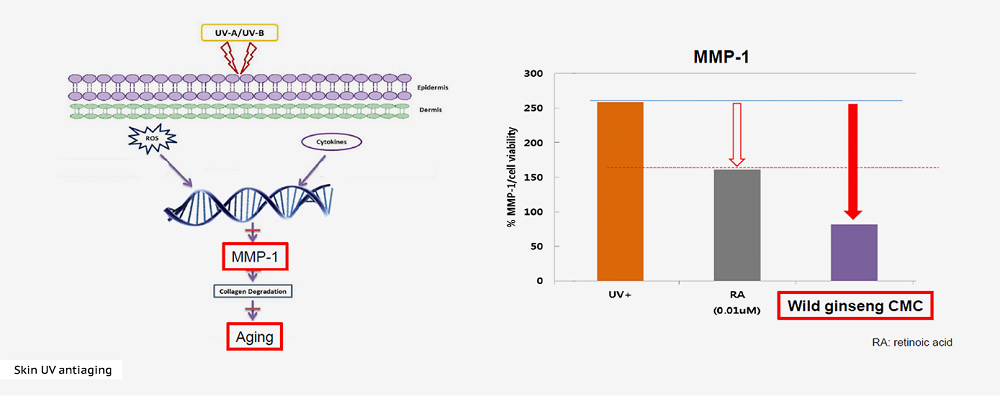
Stem Cell Ginseng Science – anti-cancer activity:
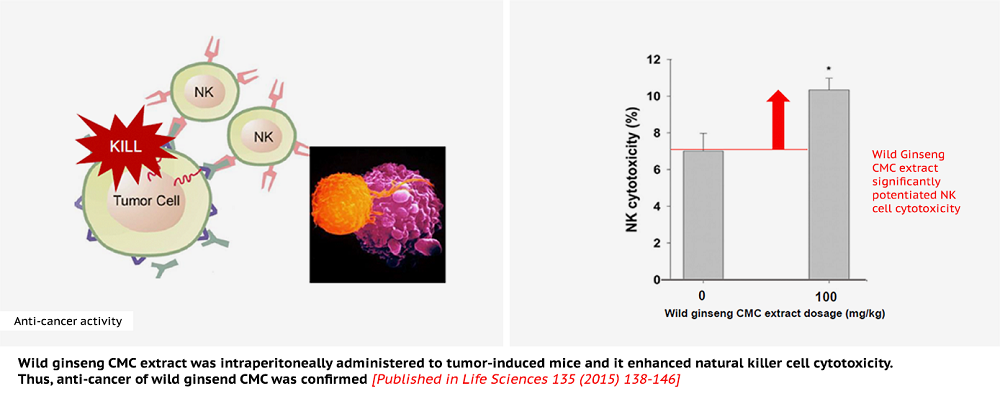
Stem Cell Ginseng Science – ROS and antioxidant effect:
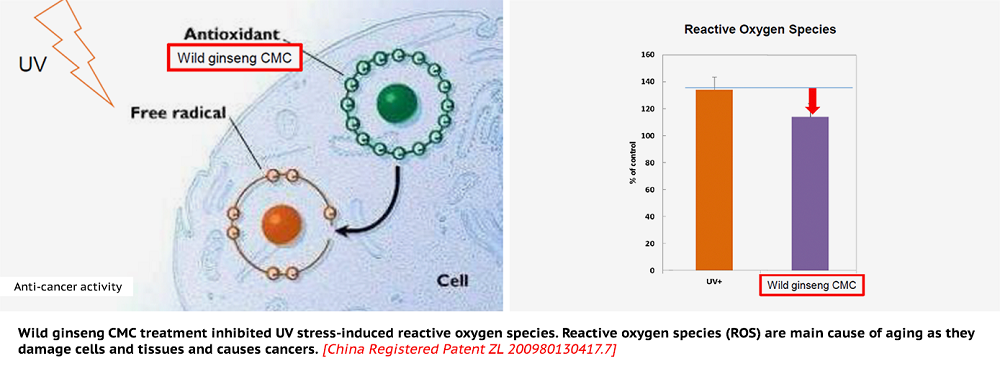
Stem Cell Ginseng Science – blood glucose regulation:
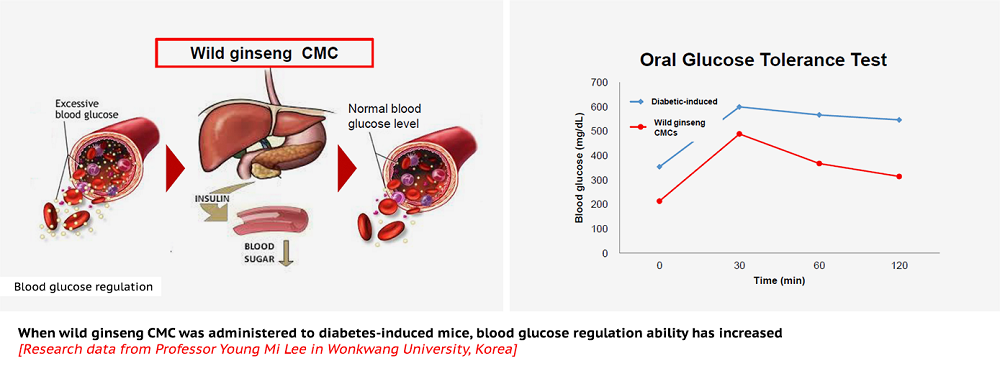
Stem Cell Ginseng Science – blood circulation:
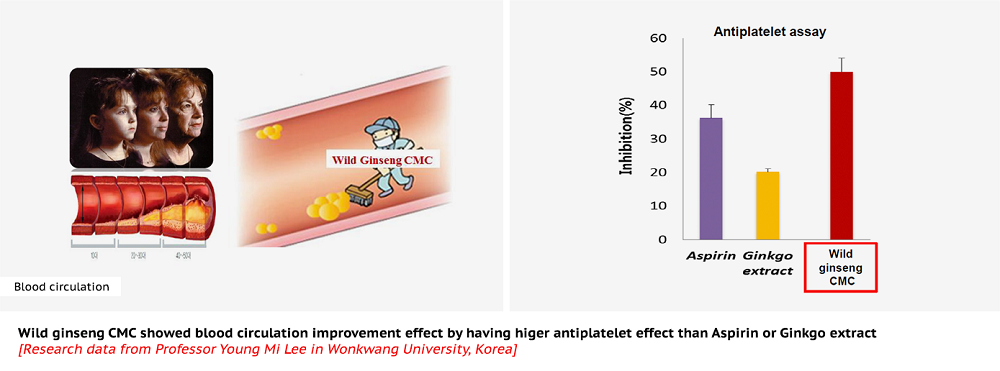
Stem Cell Ginseng Science – cancer cell inhibition:
